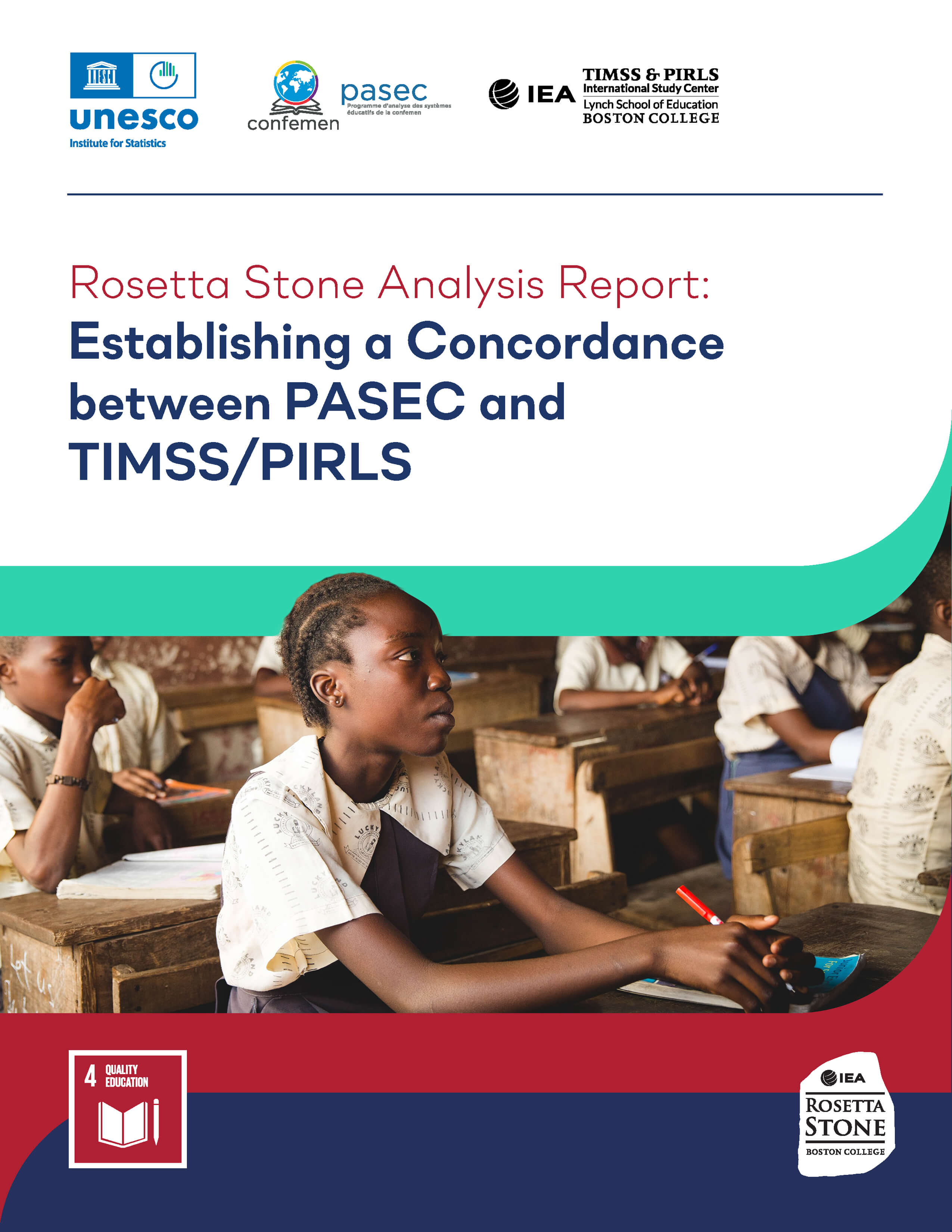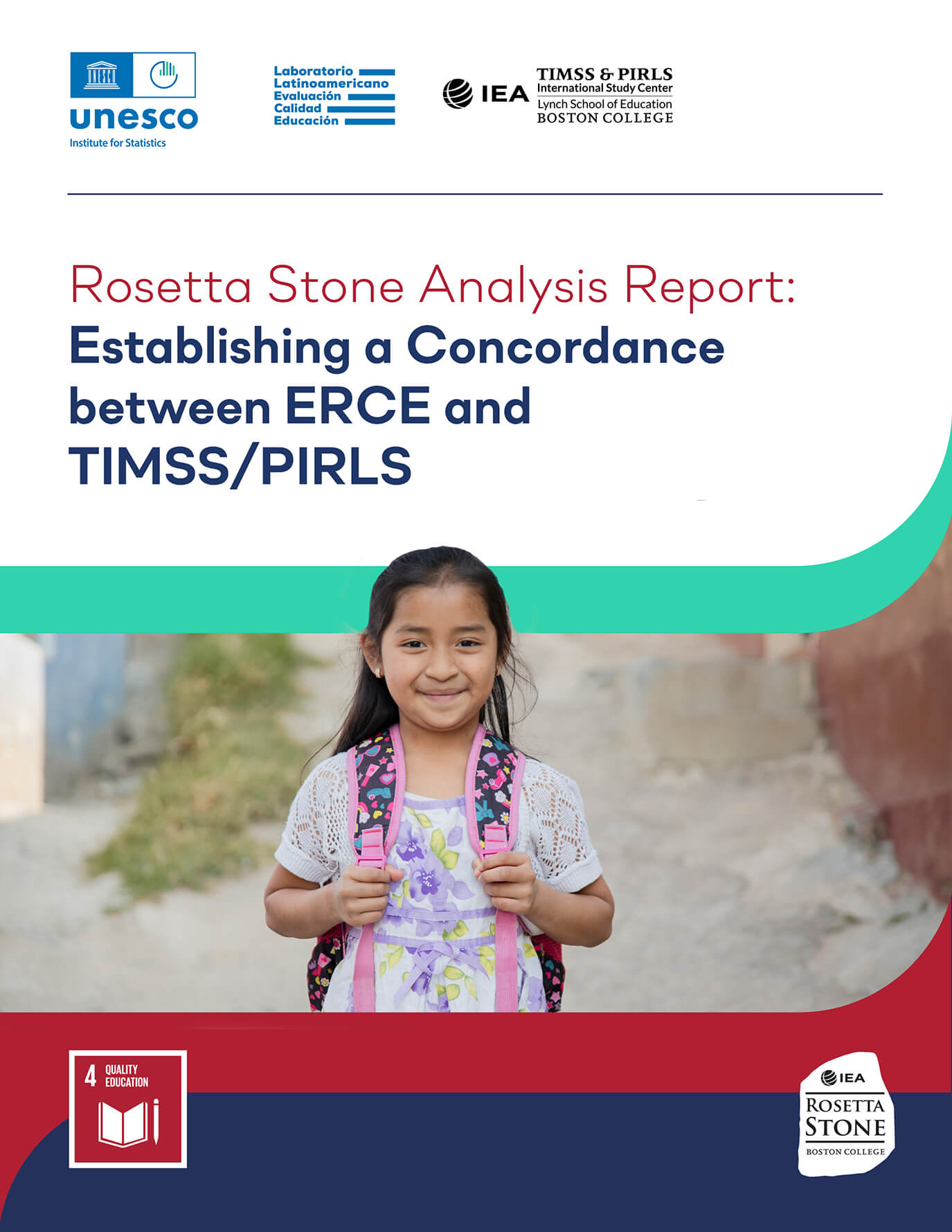IEA’s Rosetta Stone: Analysis Reports for PASEC and ERCE, 2022
IEA's Rosetta Stone was designed to help measure global progress toward the UN Sustainable Development Goal 4 to ensure students can complete a free, equitable and quality primary and secondary education and to promote lifelong learning.
The Rosetta Stone study established concordance tables for relating different regional assessment programs to the TIMSS and PIRLS international long-standing metrics and benchmarks of achievement. Countries that participated in regional assessments, but not in TIMSS and PIRLS, were provided with information about the proportions of primary school students that have achieved established international proficiency levels in literacy and numeracy which allows for international comparisons.
Concordance tables for the domains reading and mathematics have been successfully established for PASEC in francophone Sub-Saharan countries and for ERCE in Latin American and Caribbean countries. The Rosetta Stone analysis reports for PASEC and ERCE outlines the design and data analysis utilized to construct the concordance tables and provides useful information on how to use these properly.
Read more about the Rosetta Stone studies and the use of concordance tables in the Rosetta Stone Analysis Report for PASEC and the Rosetta Stone Analysis Report for ERCE.

